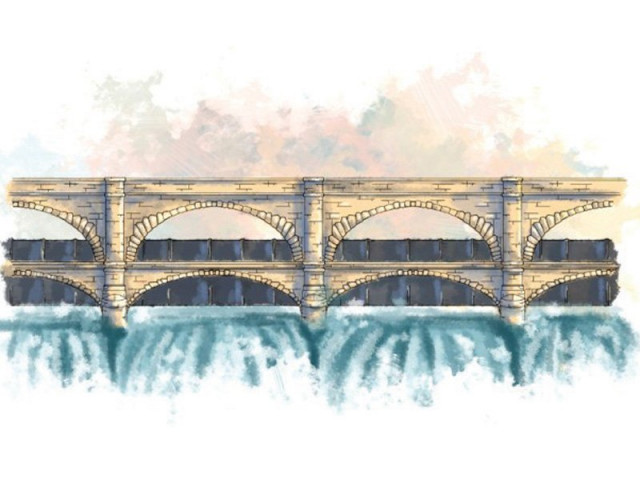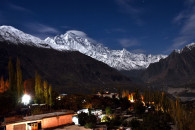Controversial project: Hague court issues partial award on Kishanganga dam
Court allows India to divert Kishanganga-Neelum River.

The court’s decision requires Pakistan and India to supply data on flows by June 2013. PHOTO: CREATIVE COMMONS
The International Court of Arbitration (ICA) has issued a partial award on the controversial Kishanganga hydro-electricity project (KHEP) in response to Pakistan’s appeal for ‘interim measures’ against the dam which may inhibit the restoration of the river flow to its natural channel.
ICA gave its decision on two disputes put forward before the court. In the first dispute, the court has allowed India to divert the Kishanganga-Neelum River as it considered the Indian project to be “run-of-the river” plant, meaning they do not require large storage reservoirs or cause major disruption to the flow.
However, the diversion will take place under strict conditions. Furthermore, the court has yet to determine the minimum downstream flow of the dam. The court’s decision requires Pakistan and India to supply data on flows by June 2013 with the final award in the case to be given in December 2013.
According to experts, as India does not know the quantum of water available to it, the Indian decision on the size of the power plant will have to be altered as full requirements will not be available as demanded by them before the court.

This decision went against India’s demand that the entire flows of the Neelum river during six to eight months of the winter season would be diverted into Wullar lake.
The second dispute was on the design and operations of the dam, which Pakistan said were in violation of the Indus Water Treaty (IWT). The court has clearly stated that drawdown flushing below the dead storage level was not permissible and that sediment flushing did not constitute an unforeseen emergency.
The court has also endorsed Pakistan’s strongly held view that the neutral expert’s decision in the Baglihar case was horribly wrong and in total violation of the provisions of the treaty.
Published in The Express Tribune, February 19th, 2013.



















COMMENTS
Comments are moderated and generally will be posted if they are on-topic and not abusive.
For more information, please see our Comments FAQ